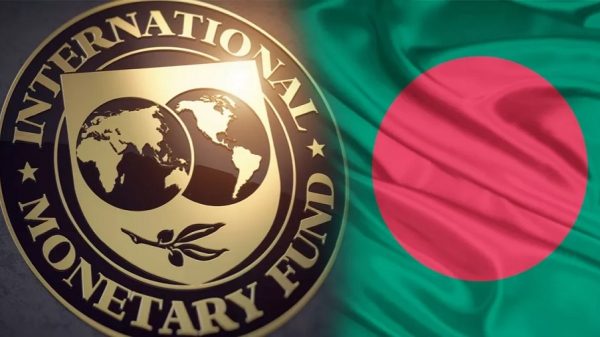IMF loan terms suitable for Bangladesh: Experts

- Update Time : Sunday, November 13, 2022
- 128 Time View

Economic analysts think that the conditions tagged with the IMF loan are suitable for Bangladesh and the conditions should be fulfilled for the greater interest of the country.
“I think that the IMF has provided the loan to Bangladesh with easy conditions. What reforms the institution has suggested is appropriate for the country,” said Dr AB Mirza Azizul Islam, a former adviser to the last caretaker government.
“They have suggested raising the tax-GDP ratio and lowering non-performing loans. We have to do these reforms for the sake of the country,” he added.
Finance Minister AHM Mustafa Kamal and International Monetary Fund (IMF) on Wednesday announced that the lender agreed to provide the $4.5 billion loan Bangladesh sought to fix its macroeconomic stability.
In a media briefing after the IMF mission completed the loan negotiations in Dhaka, Kamal told reporters that Bangladesh is going to get the loans with conditions as it had expected from the lender.
IMF will provide the $4.5 billion loan in seven instalments, of which $448 million of the first instalment will be available next February and the remaining will be available after every six months.
The interest rate of the loan will be 2.2 percent, but Bangladesh won’t have to pay any interest rate for the first instalment, Bangladesh Bank Governor Abdur Rouf Talukder has informed.
The IMF loan has a grace period as well like that of the World Bank and the Asian Development Bank. During the grace period, only the principal amount has to be paid.
Kamal informed that Bangladesh has to repay the loan in the long term, which means that it has to be repaid in 10 to 20 years.
But there is widespread criticism across the board as to whether the loan conditions will fuel economic turmoil in the country.
However, top economists have assured that the IMF loan can be termed soft according to loan terms and conditions.
Once the loan is available, it will help bring stability to Bangladesh’s economy and ease pressure on reserves.
Bangladesh also borrows from the World Bank and the Asian Development Bank, but those are mainly project loans, which have a binding for utilizing in specific projects.
Interest rates of World Bank and ADB loans are below 1 percent, which has to be repaid in 15 to 20 years. So far, the World Bank has been Bangladesh’s largest development partner.
Economists have said the type of IMF loan extended to different countries is almost the same. The global lender provides the balance of payment credit and budget support loans.
AB Mirza Aziz thinks that the new loan will help stabilise the macroeconomic uncertainty now prevailing in the country. It will also help improve the foreign currency reserve situation, he said.
Echoing the same, renowned economic analyst Dr Zaid Bakht said: “At this moment, we need the IMF loan. If we get this, the economic woes will be removed somewhat.”
Bangladesh had last taken a $1 billion extended development credit facility (EDCF) loan from IMF in 2011.















